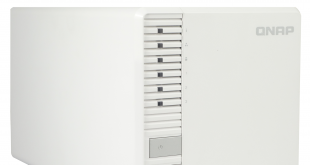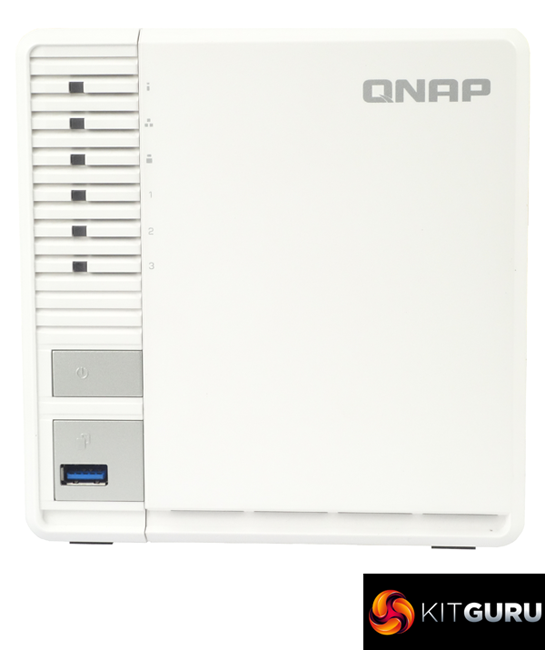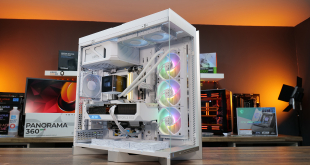
Sitting in their Home/SOHO product lineup, the TS-328 is QNAP's first 3-bay NAS and has been designed to offer the data protection of RAID 5 using the fewest disks possible to the entry level market space.

The QNAP TS-328 neatly fills the gap between low cost entry level 2-bay NAS which can only protect data with a RAID 1 array and more costly 4-bay solutions providing the better data protection and performance of a RAID 5 array. It can do this as the three drives it supports happens to be the least number of drives you need to build a RAID 5 array.
Powered by a Realtek RTD1296 quad-core 1.4 GHz processor the TS-328 comes with 2GB of DDR4 memory and if you feel the need to add more unfortunately you're out of luck as memory isn't expandable. The TS-328 comes with two Gigabit Ethernet Ports which support Link Aggregation, two USB 3.0 Type-A ports and a single USB 2.0 port
The Realtek RTD1296 is a slightly higher spec than the Realtek RTD1295 powering the TS-228A, which we reviewed recently HERE. The RTD1296 brings support for two Gigabit Ethernet ports, an additional USB3.0 port and an additional SATA port. The processor brings with it both hardware encryption and transcoding engines and the latter allows for real-time transcoding of 4K Ultra HD (10-bit H.265 (HEVC), MPEG-4 Part 2, MPEG-2, VC-1) at a maximum resolution for 4K of 4096 x 2160 and at a maximum frame rate of 30fps.
Physical Specifications
Processor: Realtek RTD1296 quad-core 1.4GHz.
Memory: 2GB DDR4.
Gigabit Ethernet Ports: 2 (supporting Link Aggregation).
Rear panel connectors: 1 x USB 2.0, 1 x USB 3.0. 3.5mm speaker and line out jacks.
Front panel connectors: 1 x USB 3.0.
RAID support: JBOD,0, 1, 5.
Cooling: 1 x 9 cm smart Fan.
Drive Bays Supported: 3.
Maximum hard drive size supported: 12TB.
Maximum Capacity: 36TB.
Internal File System support: EXT4.
Dimensions (D x W x H): 260.1 x 150 x 142mm.
Weight: 1.64kg.
 KitGuru KitGuru.net – Tech News | Hardware News | Hardware Reviews | IOS | Mobile | Gaming | Graphics Cards
KitGuru KitGuru.net – Tech News | Hardware News | Hardware Reviews | IOS | Mobile | Gaming | Graphics Cards


